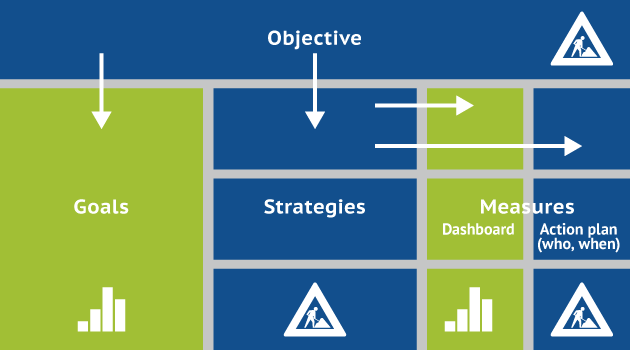Understanding the Role of Feedback in Your Career
Feedback from a manager is a key part of learning and advancing at work. It can show areas to improve, highlight strengths, and guide decisions about career growth.
Why Feedback Matters for Professional Growth
Feedback helps employees learn what they are doing well and where they can get better. It supports skill development and helps people avoid repeating mistakes. Without feedback, employees can feel lost about what is expected.
Discussing performance with a manager opens up the chance to ask questions and receive advice. Honest comments from a supervisor help workers plan future goals. It also makes it clear how their role fits with the company’s needs.
When employees seek feedback, it shows they want to improve. This attitude is often valued during performance reviews, making it easier for managers to support their career development.
The Link Between Feedback and Performance
Feedback is directly tied to job performance. Regular feedback can help staff stay on track and do quality work. It clears up misunderstandings about what managers want.
Good feedback helps employees focus on important tasks. It can explain what needs immediate attention and what can wait. This makes it easier to meet both short-term goals and bigger targets.
Constructive reviews help people see where they can adjust their approach. When feedback is given openly, it can reduce stress and help build trust between a manager and their team. Employees who get helpful feedback tend to feel more confident in their roles.
Types of Manager Feedback and Reviews
Feedback from a manager can take different forms. Some feedback is formal, like in scheduled performance reviews. These usually cover employee strengths, areas to develop, and future job expectations.
Informal feedback may come during daily conversations, after finishing a project, or in quick check-ins. This kind of feedback is often more direct and timely.
Managers might also give written evaluations, goal progress updates, or use rating systems. Sometimes feedback is given in a one-on-one meeting or shared in team settings. Each type of feedback gives employees the chance to adjust their performance and focus on professional growth.
Overcoming Anxiety When Requesting Feedback
Asking for feedback from a manager can cause stress and worry, but understanding triggers and taking practical steps can help. It’s important to recognize the signs of anxiety and use healthy strategies to manage these feelings.
Common Triggers of Feedback Anxiety
Many people feel nervous before asking for feedback at work. This anxiety often starts with a fear of criticism or not meeting expectations. Some worry that negative feedback means they are failing, while others are afraid of disappointing their boss.
Past experiences can also play a big role. If someone received harsh criticism before, they may feel tense the next time they ask for feedback. Unclear communication from managers can make things worse and create uncertainty about job performance. People may even delay opening emails or messages because they are scared of what they might read, as seen in real work situations shared by employees online.
Recognizing these triggers is the first step to managing anxiety and improving confidence at work. Knowing that feedback is not a personal attack but a path to improvement can help ease some worries. Shifting focus from fear to curiosity about personal growth encourages a more positive mindset when facing feedback.
Addressing Mental Health and Wellness
Focusing on mental health is helpful when dealing with feedback anxiety. Practicing strategies like deep breathing, taking short breaks, or writing down specific worries can calm nerves. These small actions give the mind a chance to reset and think more clearly.
For some, therapy can be a valuable resource. Speaking to a mental health professional helps individuals understand their reactions and learn coping methods. Group therapy or support from coworkers can also offer reassurance and shared advice.
Workplace stress can affect physical health, so regular exercise and healthy sleep are also beneficial. When requesting feedback, it can help to plan what to say and ask clear questions. This makes the process feel more in control and less stressful. For more information on managing workplace anxiety and communicating with managers, visit this guide on coping with feedback-related anxiety.
Building Effective Communication With Your Manager
Good communication with a manager is important for team success and reduces anxiety about asking for feedback. When employees build clear habits and choose the right moments to connect, it helps them get feedback that is helpful and specific.
Establishing Trust With a New Manager
Trust is built by being honest and respectful in each conversation.
One way to build trust is to listen closely and to ask questions that show you care about understanding the manager’s view. Employees can also use active listening, which means repeating back what was said in their own words to show they understand.
Regular check-ins help create a pattern where feedback is normal and expected. Starting with small topics at first, such as project updates, can make bigger topics easier to discuss later.
If an employee wants direction, they can ask for specific examples of what they did well or could improve. This makes the exchange feel more open and less risky. For more advice on building trust, active listening, and asking about communication, review these practical communication tips.
Selecting the Right Time to Ask for Feedback
Picking the right time to ask for feedback can make the process smoother.
It is best not to ask for feedback when the manager is busy or stressed. Scheduling a short meeting or asking for feedback during regular one-on-ones makes the conversation more comfortable. Using a meeting agenda can help the manager prepare.
Employees should be clear about what they want feedback on. For example, if they want to learn about their last project, they can say, “Can I get feedback on my recent project update?” Approaching the subject in a calm moment and focusing on specific tasks makes it more likely to get helpful feedback.
More ideas about good timing and preparing to talk with your manager about feedback can be found in these feedback conversation guidelines.

Approaches to Receiving and Implementing Feedback
Feedback from a manager can help employees grow, learn new skills, and improve their performance. Understanding specific techniques for listening to feedback and responding to it can make these moments more helpful and less stressful.
Active Listening During Feedback Sessions
Active listening means paying close attention to what the manager says without interrupting. Keeping eye contact, sitting up straight, and nodding shows the manager you are focused.
Using note-taking can help remember important details and action items. If something is unclear, asking for examples or repeating back the main points helps avoid misunderstandings. It’s important to let the manager finish before jumping in with responses or questions.
Feedback should be taken as information for improvement, not a personal attack. Building this habit can support ongoing learning and help process feedback well. Regularly reflecting on feedback after the meeting is over can help set clear goals and make the process feel more valuable.
Responding to Constructive Criticism Professionally
When a manager gives constructive criticism, staying calm and professional is critical. Thanking the manager for their input shows maturity and keeps the conversation positive.
Addressing the manager’s comments with a brief summary confirms understanding. For example, “So you’d like me to pay more attention to detail when finishing tasks, is that right?” This check-in can clear up any confusion right away.
Instead of getting defensive or making excuses, asking for tips or specific ways to improve turns criticism into a chance for learning. Setting small goals or scheduling a follow-up meeting shows you are taking feedback seriously. Being open to feedback builds trust with the manager and makes future giving feedback moments smoother.
Practical Strategies to Reduce Feedback-Related Stress
Taking steps to manage stress can make feedback from a manager easier to handle. Simple actions can change how a person feels and responds, helping them focus on growth instead of worry.
Setting Realistic Expectations for Feedback
Many people expect feedback to always be negative or harsh, which increases anxiety. It is helpful to understand that most managers give feedback to support learning and improvement.
Before a meeting, it helps to remind oneself that feedback is a regular part of work life. Taking a few seconds to process what is being said, instead of answering right away, can lessen stress and avoid overreacting. This pause allows time to think clearly and understand the key message.
It also helps to see feedback as a tool for improvement, not a sign of failure. Keeping an open mind and asking questions shows a willingness to grow. Regular feedback sessions can also make the process feel less intimidating over time. Building this habit helps reduce the emotional buildup before meetings, as explained in advice for processing feedback without stress.
Seeking Support Through Coaching and Career Advice
Coaching can give employees someone to talk to about their worries and help them develop better ways to handle stress. A coach offers guidance on how to talk with managers, ask for clear feedback, and set personal goals.
Career advice from a trusted mentor also helps place feedback in context. A mentor or coach can help identify skills that need work and suggest ways to improve. This support system gives workers confidence and builds their ability to accept feedback as part of their career growth.
Having regular check-ins with coaches or mentors can make feedback feel like a natural part of professional development. Some people set up meetings to get feedback more often, which can help feedback feel less scary and more manageable. This ongoing support makes employees feel less alone and more prepared for feedback from their manager.
Improving Job Performance and Productivity Through Feedback
Regular feedback from a manager can boost job performance, sharpen productivity, and help an employee manage tasks more efficiently. Building clear communication cycles supports smarter decision making and reduces the stress connected to looming deadlines.
Incorporating Feedback Into Daily Workflow
Employees who use feedback in their routines see faster improvement. When managers share tips or suggest changes, writing down these suggestions can make it easier to remember and use them. Some keep a small notebook or add notes to their daily to-do lists.
A good way to use feedback is to ask specific questions for clarity. For example, instead of asking if work is “good,” employees can request details about what worked and what needs to change. This makes the feedback more actionable.
Small steps, such as adjusting the order of tasks or adding more detail in reports, can show clear results when these tweaks become habits; both productivity and quality of work increase. Feedback helps employees catch mistakes early, reducing repeat errors and time spent fixing problems.
Tracking Progress Toward Performance Goals
Feedback makes it easier to track growth by setting clear expectations. Many workers use progress charts, checklists, or digital spreadsheets to measure goals. Simple tools like these help visualize change over time and see if goals are met.
Meeting regularly for performance reviews gives both managers and workers a chance to review successes and address areas for growth. It also helps employees see patterns in their development and understand what actions create better results.
Documenting feedback and comparing it against milestones can highlight skills that need work. When employees adjust their approach based on feedback, they close gaps in performance and are more likely to achieve specific job targets.
Managing Deadlines and Priorities Effectively
Timely feedback helps employees set accurate priorities and meet important deadlines. Managers often use feedback to point out missed deadlines or suggest ways to work faster. Employees benefit by adjusting their schedules and focusing their efforts where it counts most.
One way to manage time is by creating a chart or table that lists all tasks, who is responsible, and each deadline. This makes it easier to spot bottlenecks early.
| Task | Owner | Deadline | Priority |
| Update inventory | Sam | Apr 20 | High |
| Draft report | Jamie | Apr 22 | Medium |
By acting on feedback, workers can shift priorities if a task becomes urgent or delegate less critical work. Reviewing deadlines with a manager helps ensure all important projects stay on track and quality does not suffer. This results in increased productivity and fewer late assignments.
Takwaways
- Preparation helps: Having some questions ready before meeting with a manager can make feedback feel less stressful. For example, asking for specific examples or areas to improve gives a clear starting point.
- Be direct and polite: When feedback feels unclear or too general, it’s helpful to ask for more details. Employees can say, “Could you share an example?” to get feedback they can actually use.
- Write it down: Jotting down main points can help keep track of what was said and help focus on actions instead of emotions.
| Helpful Tips | Why it Works |
| Ask for examples | Gives clear direction |
| Focus on facts | Reduces anxiety |
| Summarize feedback | Shows understanding |
- Remember: Managers are often willing to clarify their points. By showing interest in improvement, employees encourage better communication and more helpful feedback.
- Stay calm and open-minded: Feedback is meant to help. Taking deep breaths and listening without reacting right away can make receiving feedback much easier.



